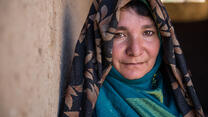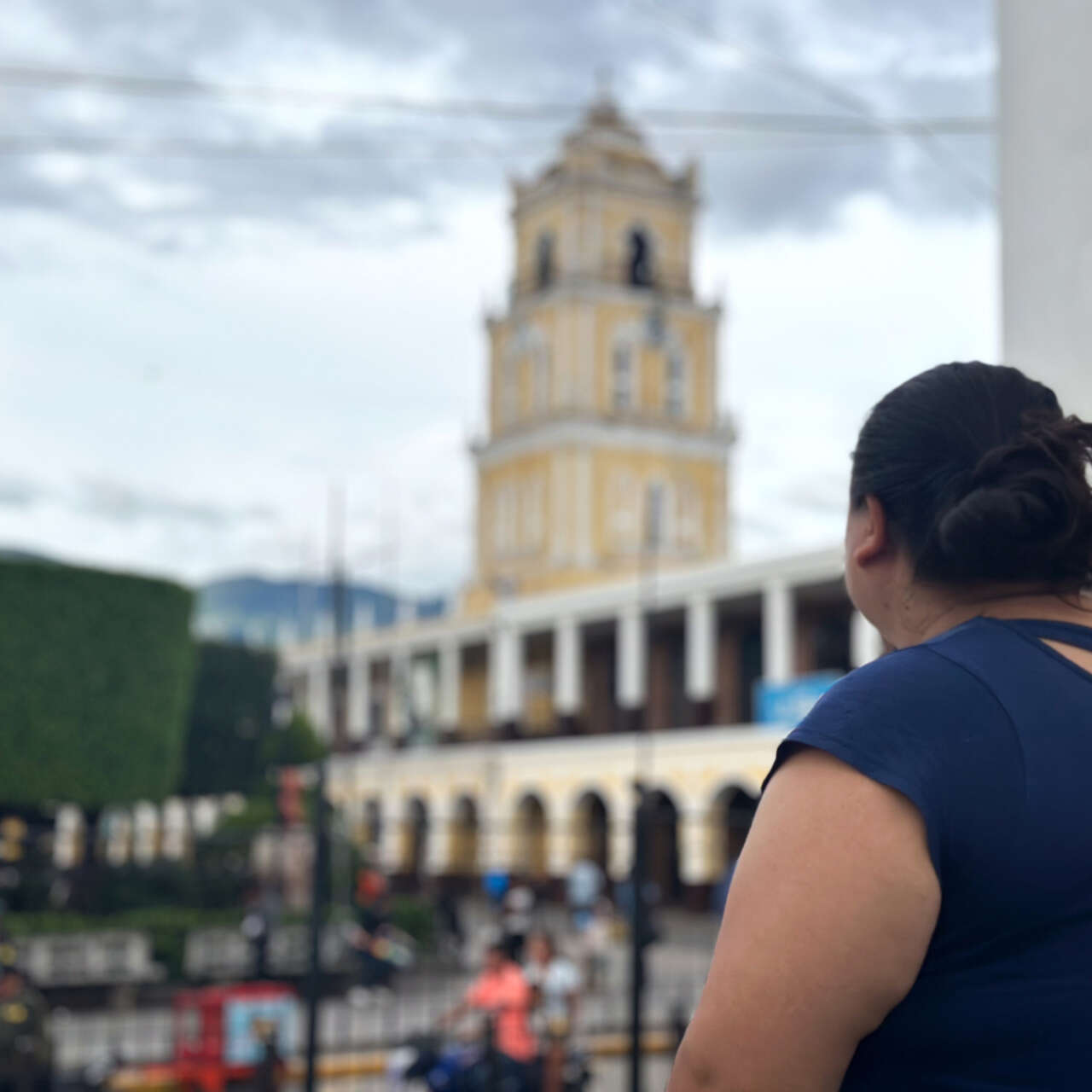
The termination of USAID has disrupted the delivery of essential protection and psychosocial health services in Guatemala's high-risk regions, where instances of violence, abuse, and exploitation affecting vulnerable populations continue to mount in response to restrictive migration policies, displacement, deepening poverty, and food insecurity
The International Rescue Committee (IRC) remains committed to providing aid to those experiencing acute humanitarian challenges in Guatemala. Alongside poverty, severe food insecurity, and climate-induced disturbances in agriculture, migration and displacement have become another major concern. Reportedly, 223,000 people entered Guatemala between January and September 2024 (UN OCHA, 2024). With funding from the European Union (EU) the IRC continues its project, focusing on providing protection services to vulnerable populations in Huehuetenango. This initiative responds to the complex set of difficulties faced by refugees, migrants, and others at high risk of displacement.
As threats to safety continue to increase in proportion to the rising rate of poverty, crime, restrictive migration policies, and internal instabilities, aid cuts affect the most unprotected inhabitants. Among them are women, girls and children—those at highest risk of abuse, human rights violations, trafficking and exploitation.
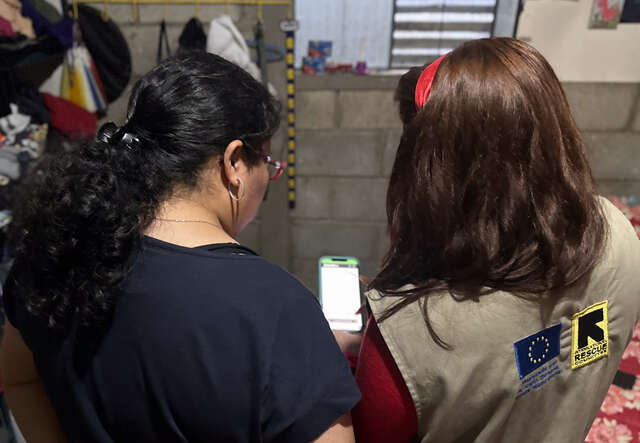
Through a community-based approach and a coordinated regional response, this project tackles protection risks by offering holistic services including psychosocial support, specialised case-by-case management for children and Gender-Based Violence (GBV) survivors, and risk prevention activities, such as careful distribution of hygiene kits, as well as dissemination of reliable information on available protection services offered. It also prioritizes capacity building on important protection-related topics for local partners in an effort to strengthen local referral pathways to empower individuals on the ground. This grounds-up approach is meant to ensure that the Multi-Purpose cash assistance service supports even those in remote and high-risk areas.
The magnitude of these humanitarian challenges is particularly acute in Huehuetenango. Yet, despite the heightened scale of needs, the European Union (EU) is the sole donor funding protection services within the region. Through their support, the IRC’s regional office in Huehuetenango deploys regular mobile teams to ensure routine field visits from protection officers, case workers and field coordinators. As of June 2025 the IRC has reached a total of 8,489 (71% women and 29% men) beneficiaries in Huehuetenango. 181 individuals have been supported through protection activities, and 1,308 individuals have received multi-purpose cash assistance. Additionally, 742 women have received case management services, including support for 593 cases related to Gender-Based Violence (GBV) and 149 cases addressing other protection needs.
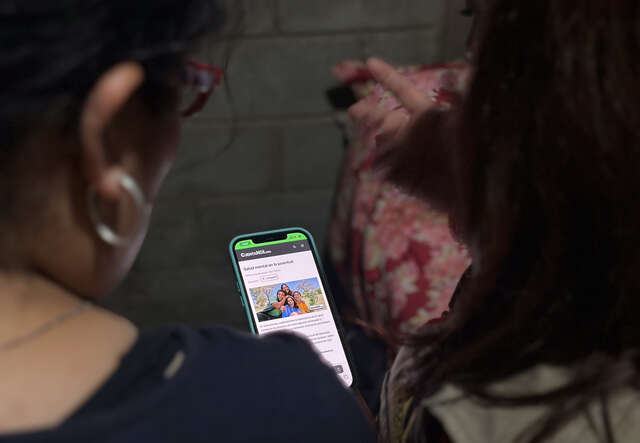
Among the beneficiaries supported by the IRC’s project is Abril*—a 32-year-old mother of two who has dedicated her life to advocating for the human rights of girls and women in Guatemala. After working through her own trauma as a survivor of sexual violence, she came to the realisation that defending her own rights has not been as easy for her. Abril was unable to fight against her aggressor, as she worried about losing her only source of income. As a result, she became depressed and suicidal. “Having children and not having any emotional or economic support from their father, I felt like I was drowning,” she explains, “Many times I thought about leaving this life.” She eventually confided in a friend who informed her about a platform, CuéntaNos.org, where she could seek help.
The stigma around mental health in her community initially deterred Abril* from talking to people she knew. However, through the CuéntaNos platform, she found herself writing out a long message speaking about her depression and the anxieties that burdened her. “I was afraid of being judged, but here I felt very safe. There were a lot of tools, like breathing tools, and how to address anxiety crises within the same message,” she says. “It was like an exchange. So it was quite helpful.” Later, she was contacted by the IRC’s team by referral so she could be assigned a case worker. Her son was diagnosed with autism spectrum disorder, and the IRC’s alliance with the Ministry of Health, as well as the Ministry of Education, seeks to collaborate on providing her son with an adapted learning curriculum. The IRC’s system of collaboration with a network of local actors is in place to ensure that women like Abril* can get specialised help.
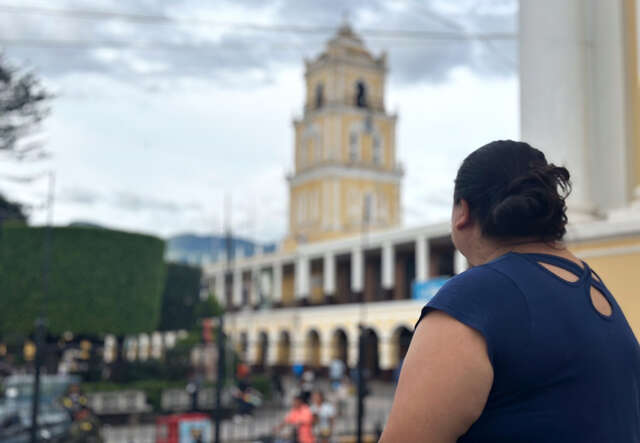
Another IRC beneficiary is Nohemy, a mother and Gender-Based Violence survivor. She had been accustomed to normalising violence throughout her life. But after learning the ways in which her psychological and physical aggressions harm not only the people she loves but also continue to leave lasting scars on her, she decided to make meaningful changes in her life. Deciding to finally shun violence, she was determined to start her life over. She explains how witnessing the lasting effects of her violence on her youngest daughter—who struggles with mental health problems—is enough to keep her from going back into negative patterns of behaviour. Through her struggles with a lack of steady income, she continues to push forward, working long, late hours to provide for her family. “For me, to live a life free of violence is a peaceful life, where I am the one who decides,” she says. The IRC’s project has been a vital pillar for Nohemy, supporting her through mental health and psychosocial services, as well as multi-purpose cash assistance.
Historically, Guatemala’s largest donations for protection and health intervention came from U.S. aid. The IRC’s protection work has been crucially impacted by the abrupt cessation of USAID in Guatemala. It has left thousands of women, girls and other vulnerable populations without access to essential services. In areas like Huehuetenango, with rampant gender-based violence, forced displacement, and return migration, the impact of aid cuts has been devastating. Services for survivors of violence, such as case management, clinical care, and mental health and psychosocial support, have been interrupted. Sexual and reproductive health services are now practically inaccessible, especially to those in precariously remote regions. Many local civil society organisations, including key IRC partners, have lost vital funding.
Recent data reports over 8,000 cases of physical, sexual, and psychological violence against women in Huehuetenango. Significantly, however, community-level prevention and awareness services remain largely unavailable, especially in rural areas where impunity continues to undermine legal processes. The crisis extends beyond violence, as entire communities seeking refuge have been displaced from Mexico into Guatemala, while others within Huehuetenango face internal displacement risks due to the loss of housing and means of livelihood, compounded by natural disasters.
Additionally, youth are at high risk of recruitment by armed groups as political instability incited by public assassinations grows concurrently with the threat of harm from crossfire. These circumstances have resulted in severe physical and psychological consequences, including fatalities caused by armed conflict. Given the urgency and complexity of the situation, there is an urgent necessity to strengthen humanitarian response, broaden access to protection services, and implement effective measures for prevention and accountability to confront the multifaceted nature of the violence affecting communities across Huehuetenango.
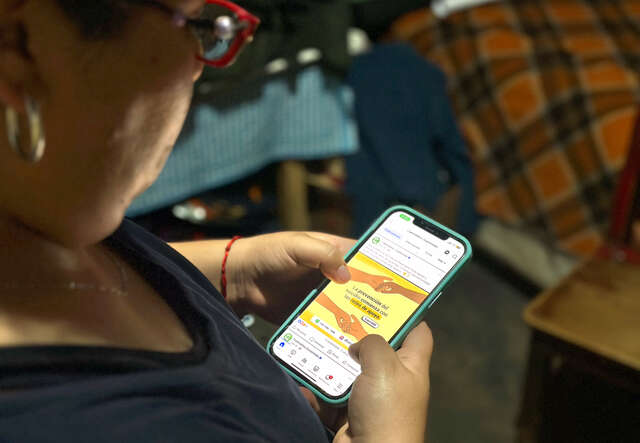
The European Union (EU) remains a leading donor funding protection and reproductive health services in high-risk areas such as the Dry Corridor and Huehuetenango. These contributions fill critical humanitarian response gaps that are only exacerbated by USAID cuts. Needs continue to outpace the available resources as protection risks for violence and displacement increase across the region. The IRC remains one of the few actors still operating protection programs and working in concert with local organisations to continue life-saving support. Without urgent reinvestment, women, girls and other disadvantaged groups remain highly susceptible to escalating levels of risk to their protection.
*Names have been changed for privacy
The International Rescue Committee partners with the European Union to provide life-saving support to people caught in conflict and disasters around the world. Our work funded by the EU enables people to survive, recover and rebuild their lives.


